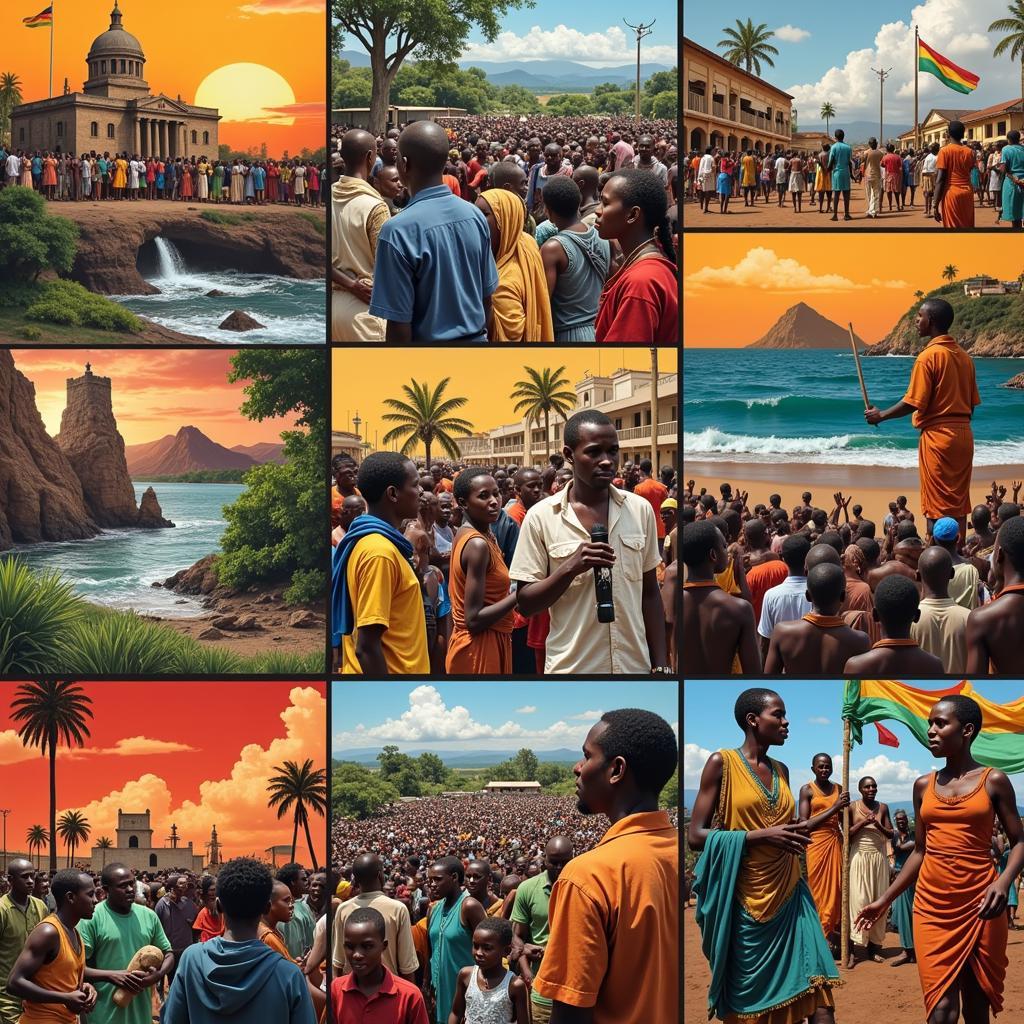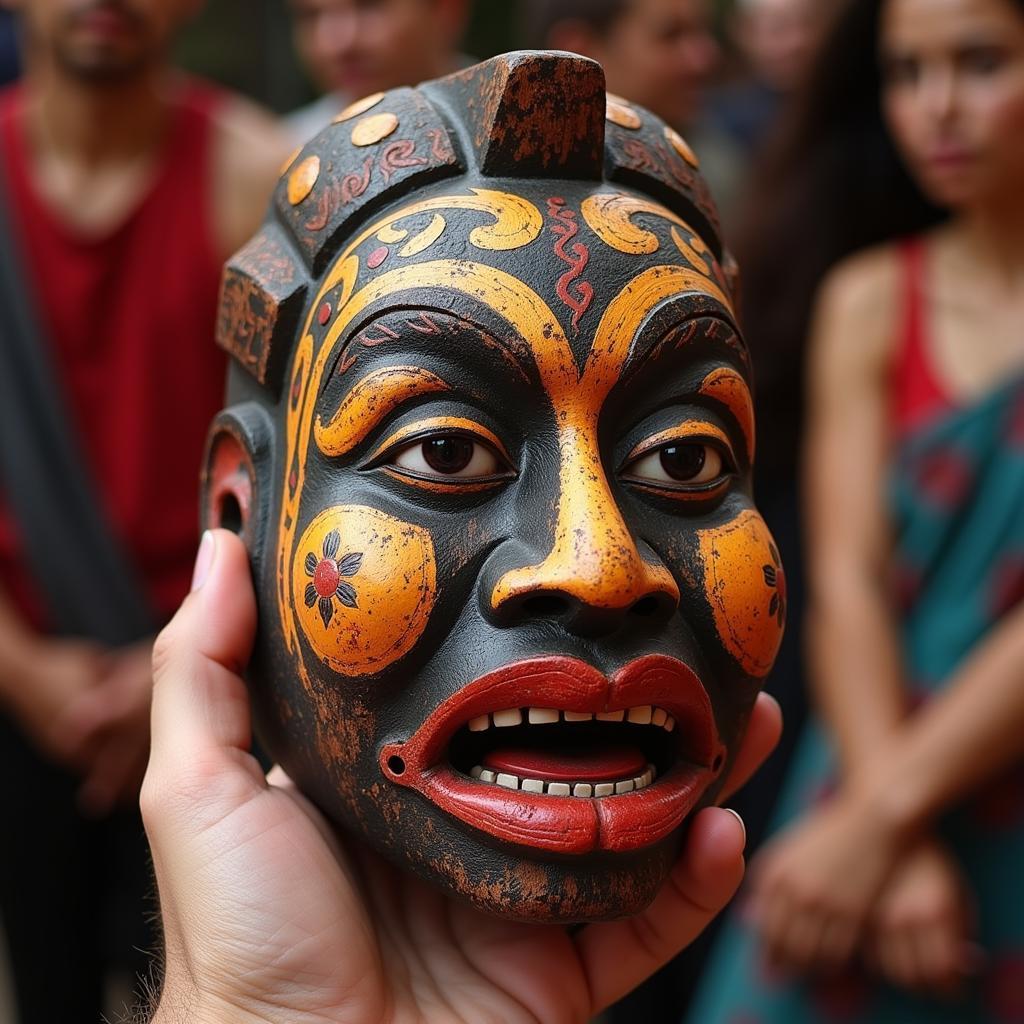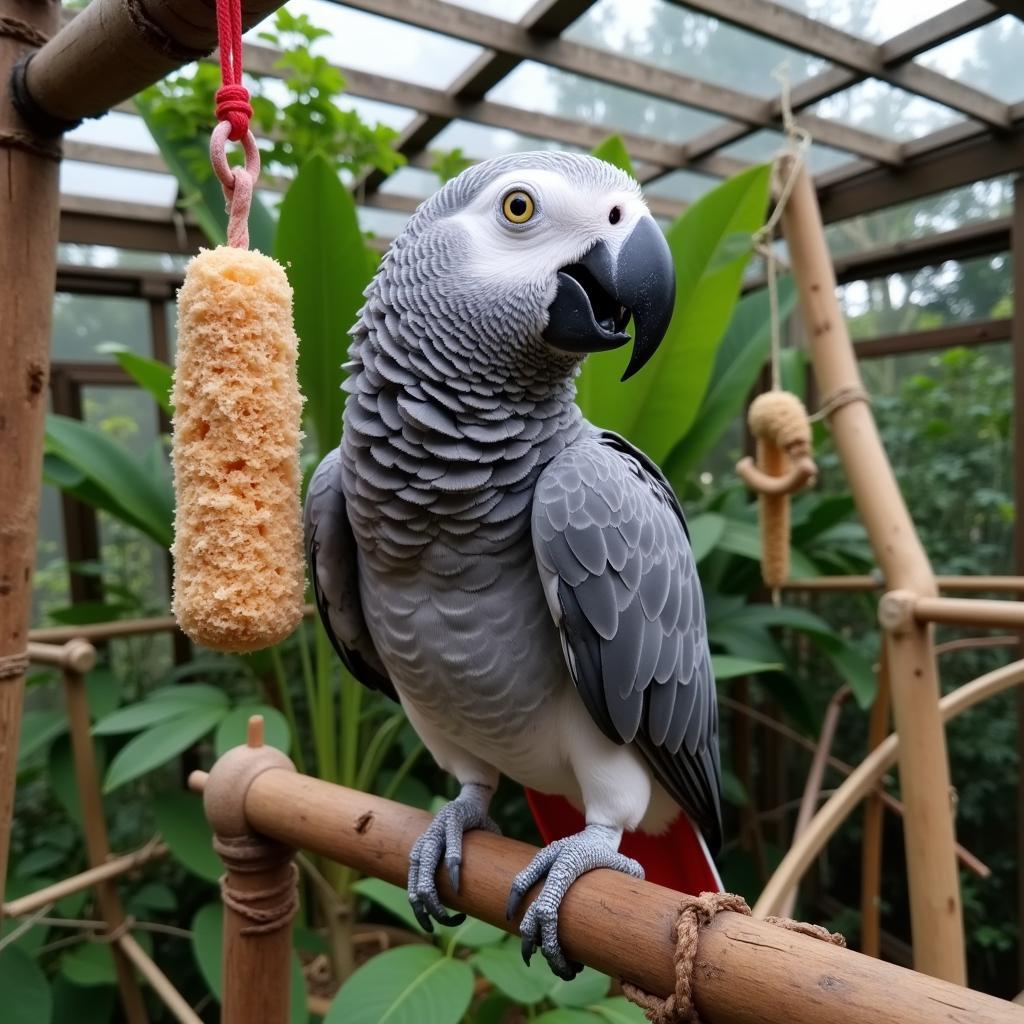African Dresses: A Colorful Journey Through Culture and Style
African Dresses are more than just garments; they’re vibrant expressions of art, history, and identity. From the flowing kente cloth of Ghana to the intricate beadwork of the Maasai, each fabric and design tells a story, weaving together threads of tradition and modernity.
Exploring the Diversity of African Dresses
The continent’s 54 countries boast a dazzling array of traditional attire, each reflecting its unique heritage and environment. In West Africa, bold colors and intricate patterns reign supreme. Nigerian women are known for their elegant iro and buba, a two-piece ensemble consisting of a wrapped skirt and a matching blouse. Ghanaian kente cloth, woven on looms and adorned with geometric patterns, represents status and occasion.
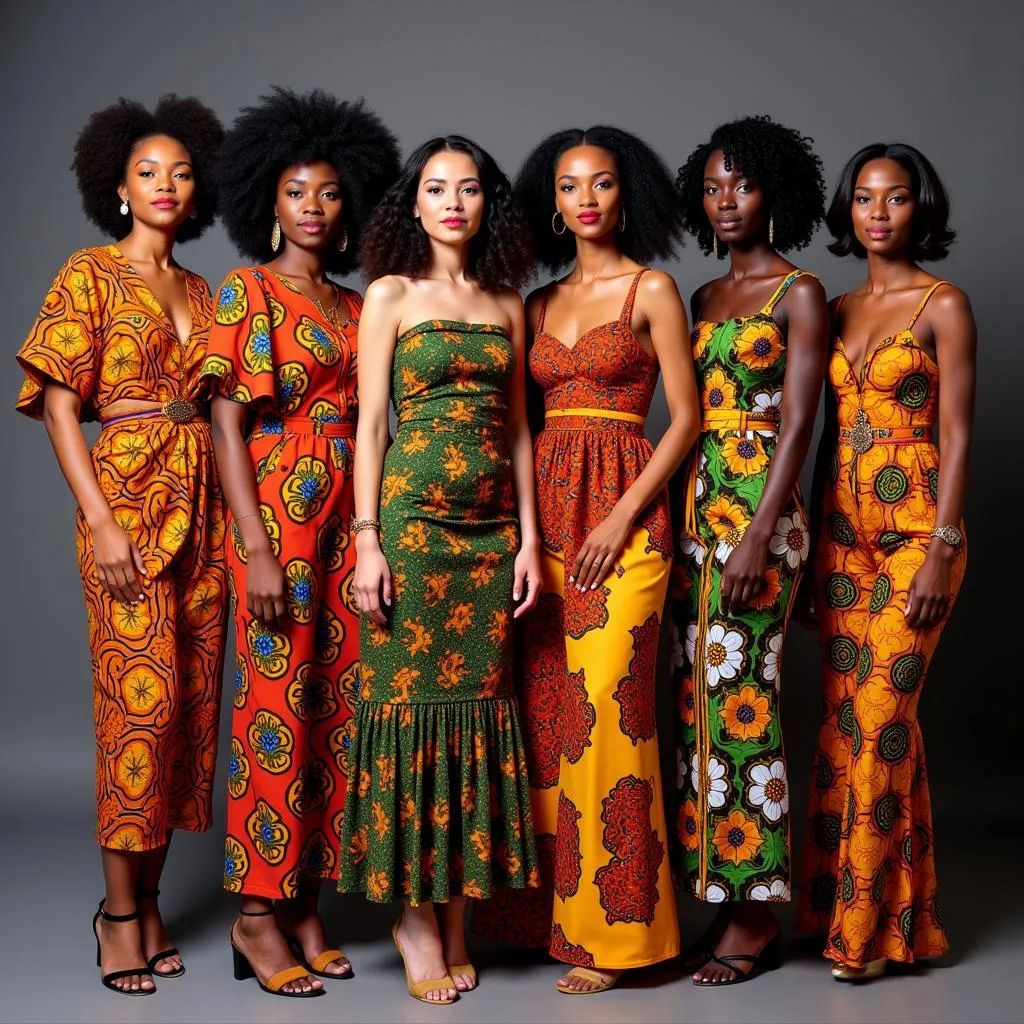 Nigerian women in colorful iro and buba
Nigerian women in colorful iro and buba
Moving eastward, East African dresses often feature flowing silhouettes and nature-inspired prints. The iconic kanga, a rectangular cloth with Swahili proverbs, is a staple in Tanzania and Kenya, worn as a skirt, headwrap, or baby carrier. Ethiopian women grace occasions in habesha kemis, white cotton dresses with intricate embroidery, while Maasai warriors are instantly recognizable in their red shukas, a type of blanket draped over the shoulder.
The Significance of Color and Symbolism
African dresses are rich in symbolism, with colors and patterns holding deep cultural meaning. For example, red often represents strength and courage, while white symbolizes purity and peace. Yellow, the color of gold, signifies wealth and royalty. In some cultures, certain patterns are reserved for specific occasions or social status.
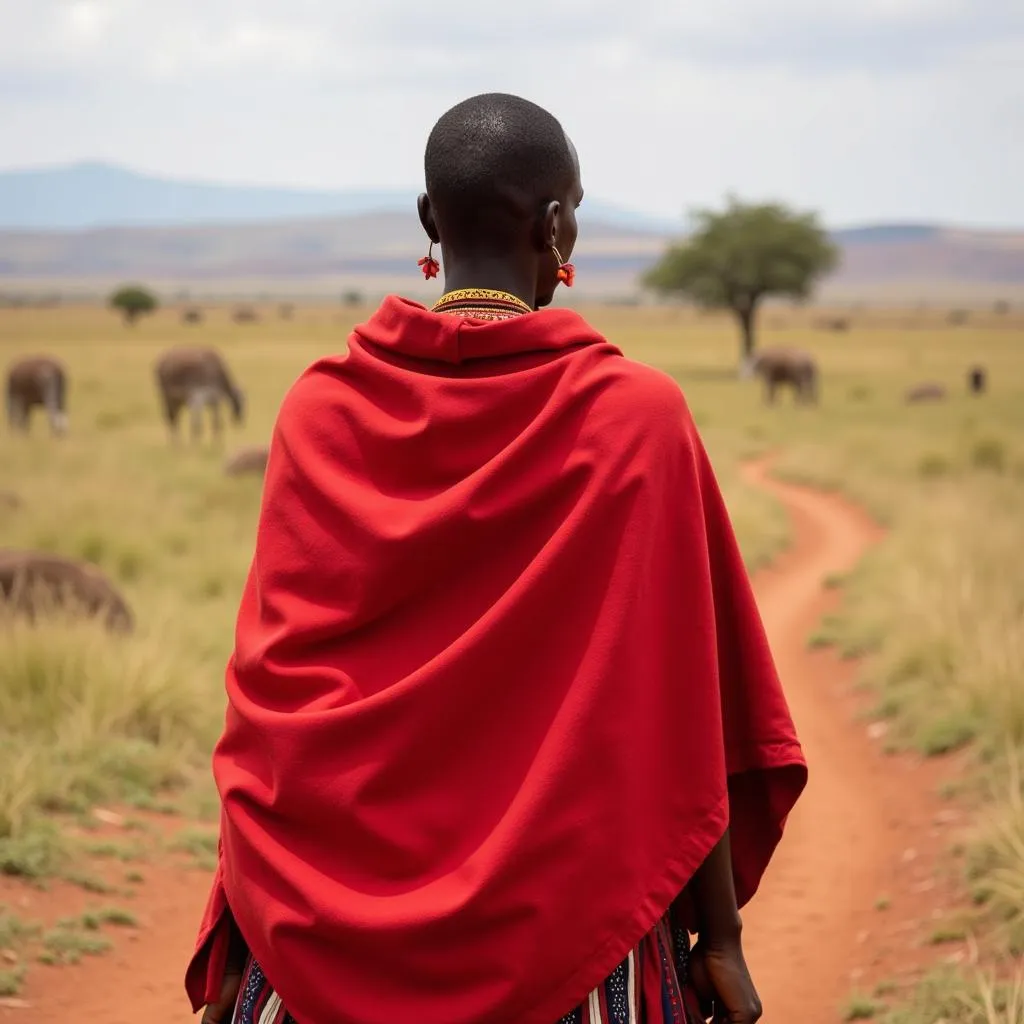 Maasai warrior with traditional attire in Kenya
Maasai warrior with traditional attire in Kenya
Modern Interpretations of African Dresses
Today, African fashion is experiencing a global renaissance. Designers are reimagining traditional styles, incorporating contemporary cuts, fabrics, and embellishments. From runways to red carpets, African dresses are making a bold statement, celebrating the continent’s rich heritage and creative spirit.
How to Embrace African Dresses
Incorporating African dresses into your wardrobe is a wonderful way to celebrate diversity and express your personal style. Whether you opt for a vibrant kente print dress for a special occasion or a simple dashiki top for a casual look, there are countless ways to embrace this rich fashion heritage.
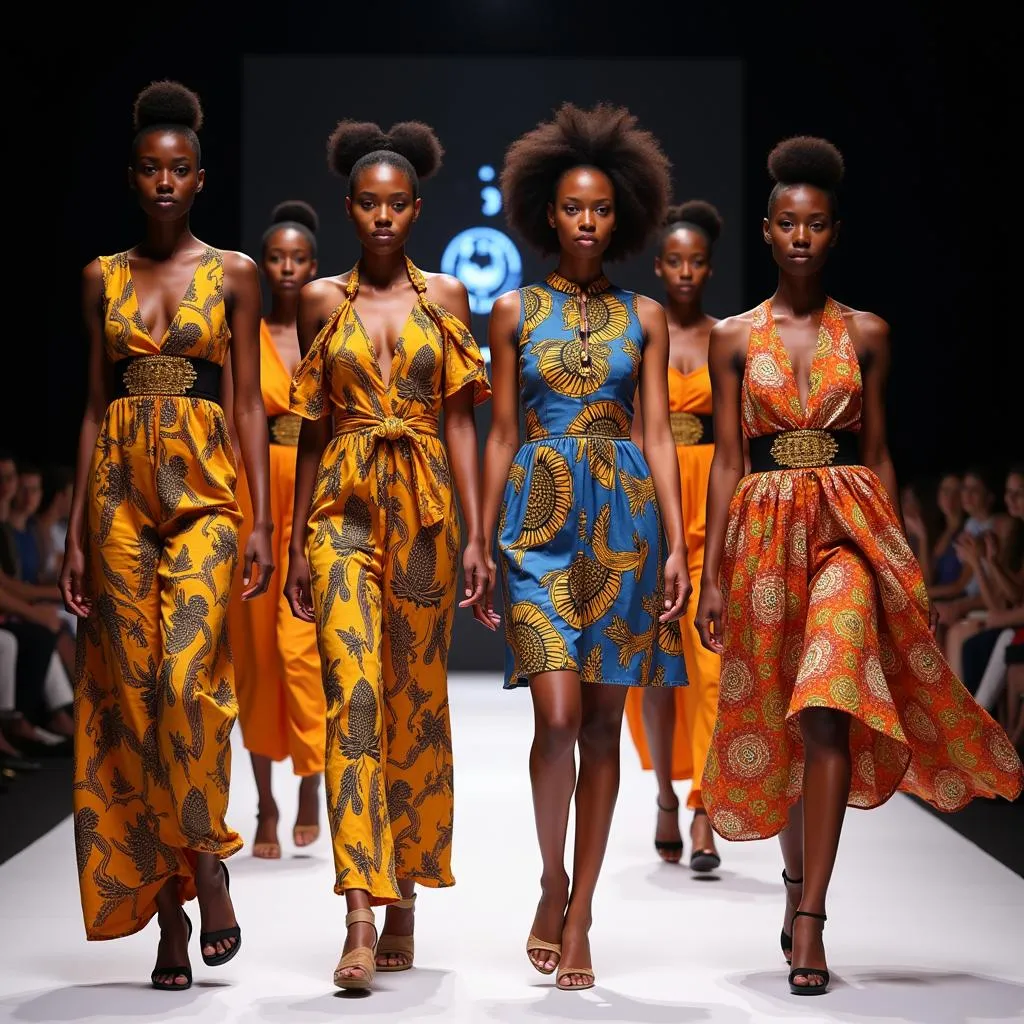 Models showcasing diverse African print dresses on a runway
Models showcasing diverse African print dresses on a runway
Conclusion
African dresses are more than just clothing; they are a testament to the continent’s rich cultural tapestry. By understanding the history, symbolism, and artistry behind these garments, we can appreciate their beauty and significance. So, whether you’re drawn to the bold colors, intricate patterns, or flowing silhouettes, embrace the vibrancy of African fashion and adorn yourself with a piece of this incredible heritage.
FAQ
What are the most popular types of African dresses?
Some of the most popular types include the iro and buba (Nigeria), kente cloth (Ghana), kanga (East Africa), habesha kemis (Ethiopia), and boubou (West Africa).
Where can I find authentic African dresses?
You can find authentic African dresses online, at specialty boutiques, and from African designers.
What is the best way to care for African dresses?
Always check the care label. Many African fabrics require hand washing or delicate machine washing.
Can I wear African dresses even if I’m not African?
Absolutely! African fashion is for everyone. Embrace the beauty and cultural significance of these garments while being respectful of their origins.
Need Help?
For further assistance, feel free to reach us at +255768904061, email us at kaka.mag@gmail.com, or visit our store in Mbarali DC Mawindi, Kangaga, Tanzania. Our customer service team is available 24/7 to help you.
